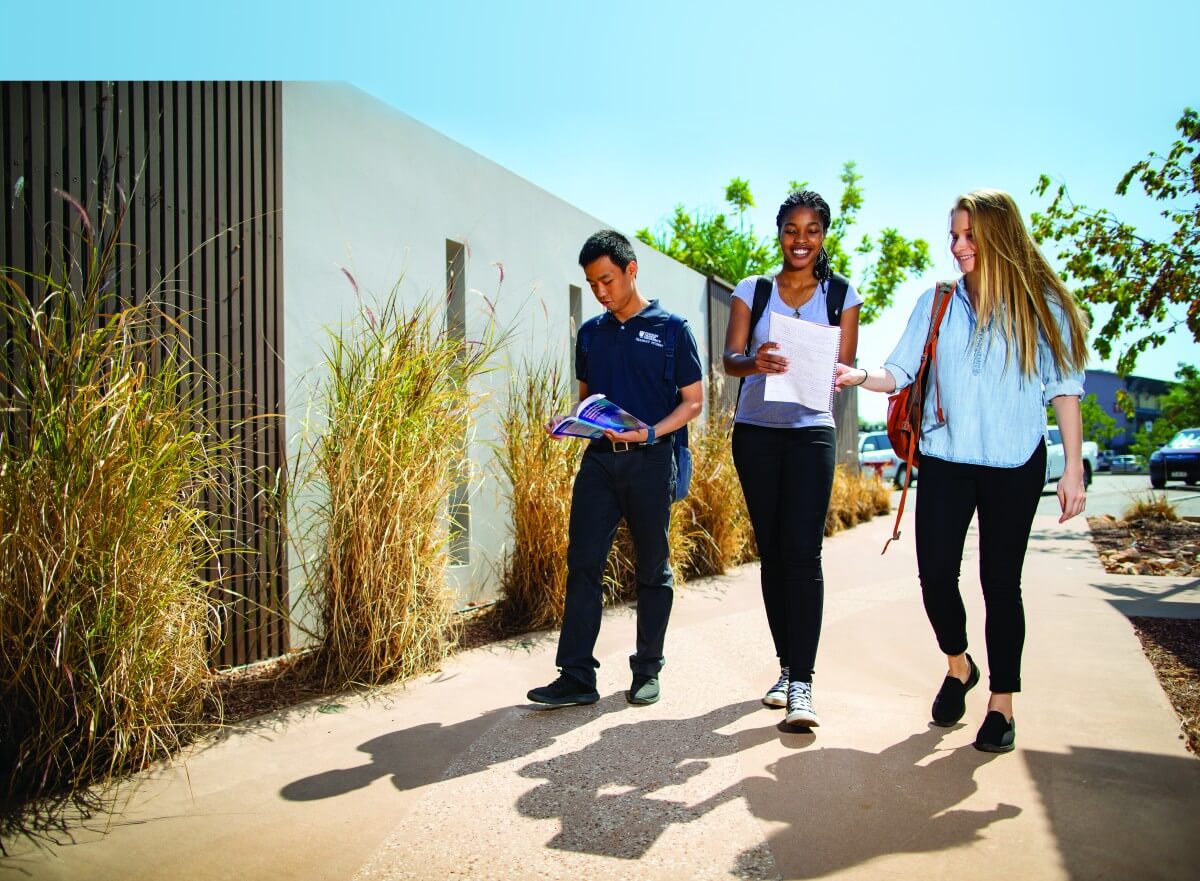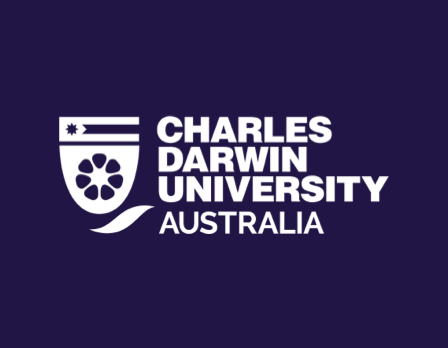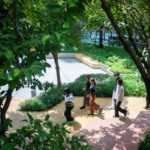The climate crisis is the defining issue of our time.
More intense hurricanes, mass displacement of vulnerable communities, catastrophic droughts – these are just a fraction of the potential adverse consequences in store for us. We have what it takes to tackle this only if we can muster an unprecedented collective response at the global, national and local level.
The United Nations Secretary General António Guterres drove this message home at the 2019 Climate Action Summit: “The climate emergency is a race we are losing, but it is a race we can win. The climate crisis is caused by us – and the solutions must come from us.”
“And we have the roadmap: the 2030 Agenda for Sustainable Development and the Paris Agreement on climate change,” the UN chief said.
Heeding this call and setting an example for universities everywhere is Australia’s Charles Darwin University (CDU).
As one of Times Higher Education’s “rising star” universities, the Australian university is well-known for its world-class education and inclusive campus community with high-quality facilities and teaching staff.

Source: Charles Darwin University
Lesser-known but equally notable are the sustainability efforts it’s spearheading within and beyond its five campuses. Though they span a diverse range of concentrations and locations, the goal is clear: Using its skills and knowledge to help shape a brighter, more sustainable world.
Its efforts have been recognised by the UK’s Times Higher Education, one of the most respected sources in global college rankings. In its University Impact Rankings 2019 – which assessed universities against the United Nations’ Sustainable Development Goals (SDGs) – CDU is ranked in the top 200 universities in the world. This recognition is driven by the university’s work towards achieving SDG Goal 3 (good health and wellbeing), Goal 10 (reduced inequalities) and Goal 11 (sustainable cities and communities).
Four innovative faculty members explain the extraordinary work CDU is doing to advance its social and economic impact:
Engineering courses and research with a green agenda
Ali Rajabipour, a lecturer at the College of Engineering, IT and Environment, is conducting research into a super material that just might hold the answer to shaping a more environmentally and socially responsible future building industry.
His focus is on the application of Bamboo Composite (BC) in construction.

Source: Charles Darwin University
“BC is a sustainable material with embodied carbon close to zero. Bamboo is widely planted in developing countries and my research could help in sustainable development of these countries,” Ali explained.
He’s not the only one conducting exciting research at CDU. Engineering students get to take courses on sustainability as well as access opportunities to carry out research projects in this area too. Some of these topics are supported by Australia’s Northern Territory Government. “Australia has a great deal of resources to protect its nature and I believe this gives engineering students the opportunity to explore different avenues of improving resilience against climate change in their designs,” Ali said.
Addressing global challenges through Vocational Education and Training (VET)
CDU carries high regard for vocational education and training. Studying here means earning an industry-recognised qualification and the practical skills to achieve your goals.
It also means learning about sustainability in a manner tailored to one’s respective field. Offered as a common requirement as well as individual units, the sustainability training at CDU focuses on “practices and government policy, efficient use of resources for tasks/skill areas, reduction of environmental risks and impacts and, more broadly, minimisation of our ecological footprint,” according to Michelle Lewis, who heads the School of Primary Industries.

Source: Charles Darwin University
Being based in a country like Australia, it allows CDU educators to provide valuable experiential learning to explore the issues related to the climate crisis. The Conservation and Land Management training is one such example.
“We include units on surveying animals and plants, fire management and the use of maps and historical information which provides year on year data and allows us to track changes in the ecology of an area,” Lewis explained.
The beginning of sustainability for the postcolonial Australia
CDU is a place to learn about the Yolŋu, one of the many groups of Indigenous people in the Northern Territory of Australia.
For over 65,000 years, Indigenous Australians have traditionally cared, nurtured and lived with the land from which languages and culture ancestrally emerged. They provide a different, but much-needed insight into how a sustainable future should look like.
“Learning from how Aboriginal knowledge authorities differently negotiate and practice their knowledge that constitute their world, students are urged to hold back an academic assumption that is often established upon a single-valued truth claim, and prepare themselves to be able to work productively in inter-cultural space,” explained Joy Bulkanhawuy, Brenda Muthamuluwuy and Yasunori Hayashi, who teach Indigenous language and culture.

Source: Charles Darwin University
“We are happy to share our knowledge with you in the right manner, but also would like to accept/adopt techno-scientific knowledge only when appropriate for our country. We are looking forward to sitting and having a cup of tea with students. We are keen to hear thoughts how your ‘sustainability’ for this country could be achieved collaboratively with us.”
Preparing the planet for future generations
In 2015, the world celebrated its achievements in reducing poverty as set by the Millennium Development Goals. But this monumental progress is set to be undone if there is no clear management of geological, hydrological and climate related hazards today, warn CDU lecturers who teach the Humanitarian, Emergency and Disaster Management course.
In this course, students learn that without making the world a safer place, we can “destroy development outcomes that have been accumulated over tens of years,” said Akhilesh Surjan, Kerstin Zanders and Jonatan Lassa.
“Through our research and teaching, we argue that without systematically addressing risks and vulnerability through disaster reduction and climate change adaptation, sustainable development will be compromised and will remain a distant dream,” explained Akhilesh Surjan, Kerstin Zanders and Jonatan Lassa.
One key way to make sustainability work is to institutionalise it, they said, like CDU does.
CDU promotes waste segregation and recycling, as well as learning from Indigenous communities’ way of living which produces very low carbon footprints.
Follow CDU on Facebook, Twitter, YouTube, Instagram, LinkedIn and Weibo
Liked this? Then you’ll love these…
Real-world learning at a progressive Australian university
Why 21st century success begins with studying business abroad











